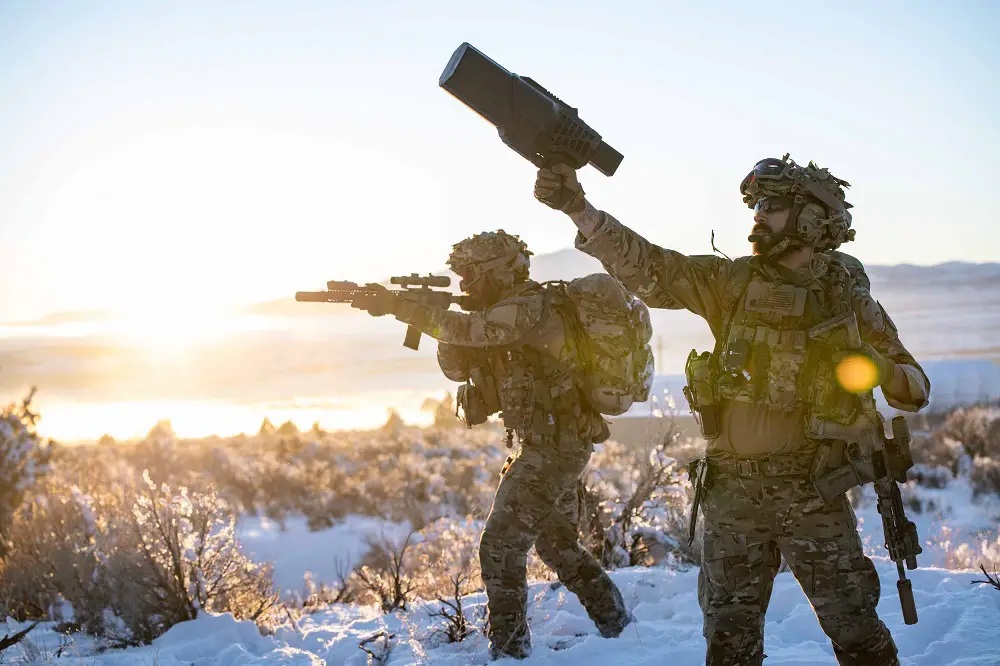The NATO Support and Procurement Agency (NSPA) has approved the first Counter-small UAS (C-sUAS) procurement framework agreement in NATO’s history. The framework agreement, initially valid for three years, was awarded via COBBS BELUX BV, DroneShield’s and MyDefence in-country Belgium and Luxemburg partner, for MyDefence Wingman and Droneshield Dronegun Mk4, on behalf of the Communications Cryptographic and Electronic (CCE) Support Partnership (SP). The CCE SP is managed by NSPA, with Belgium as the sponsoring Partnership Nation. The framework agreement offers a unique provision of leasing, acquisition and integrated logistics services. The innovative leasing arrangement enables end-users with the opportunity to trial the equipment and assess needs and requirements before committing to a full fleet acquisition.
DroneGun Mk4 is a rugged, handheld counter-unmanned aircraft system (C-UAS) developed by the Australian defence company DroneShield. The disruption triggered by the C-UAS may lead to either a vertically controlled landing of the target UAS on the spot, or a return to the operator or the point of its origin. DroneGun Mk4 is a pistol-shaped drone jammer measuring 660mm long, 356mm wide and 213mm high. Its improved ingress protection IP67-rated rugged design allows for reliable operations of the system in harsh environments and in temperatures ranging from -20°C to 55°C. The WINGMAN is a wearable, intuitive drone detection alarms. It is a ruggedized version with an internal rechargeable Li-Ion battery. It makes it both a versatile and durable WINGMAN, which makes it perfect for smaller and shorter operations. It is specially designed to meet the requirements of law enforcement and security officers, but also the military uses it for shorter operations.

Overall, the C-sUAS framework agreement addresses an emerging capability gap in the militarized drone domain by provisioning equipment to detect as well as neutralize small drone-based threats, which have grown exponentially in the last few years. In September 2023, the NATO Counter Unmanned Aircraft System Technical Interoperability Exercise (C-UAS TIE23) brought together military, scientific and industry specialists to test high-tech commercial solutions used to detect, identify, and neutralise drones. NSPA is NATO’s lead organisation for multinational acquisition, support and sustainment in all domains. The Agency acts in the market to link industry capabilities and nations requirements to find the most cost-effective and efficient solutions, whether for national or collective defence.
The NATO Support and Procurement Agency’s objective is to obtain the best service or equipment at the best price for the customer by consolidating requirements from multiple nations in a cost-efficient way through its Support Partnerships. This support structure is a distinctive feature of NSPA. Participating Nations provide governance and guidance, whereas NSPA develops capabilities and manages Nations’ requirements. The consolidation of requirements provides economies of scale, reducing costs and logistics footprint, and the legal framework offers a common and efficient support. The NSPA Source File is a centralized database containing past, present and potential vendors, including performance and capabilities. Source File registration is therefore necessary to be invited to a solicitation and for the potential bid to be evaluated and considered for award.
















